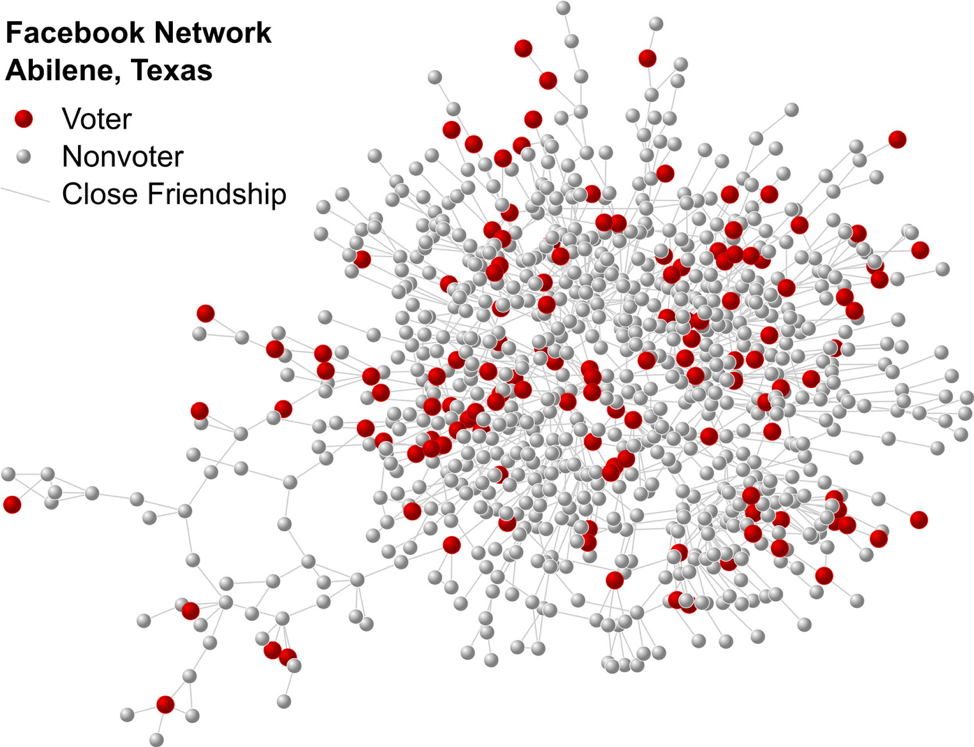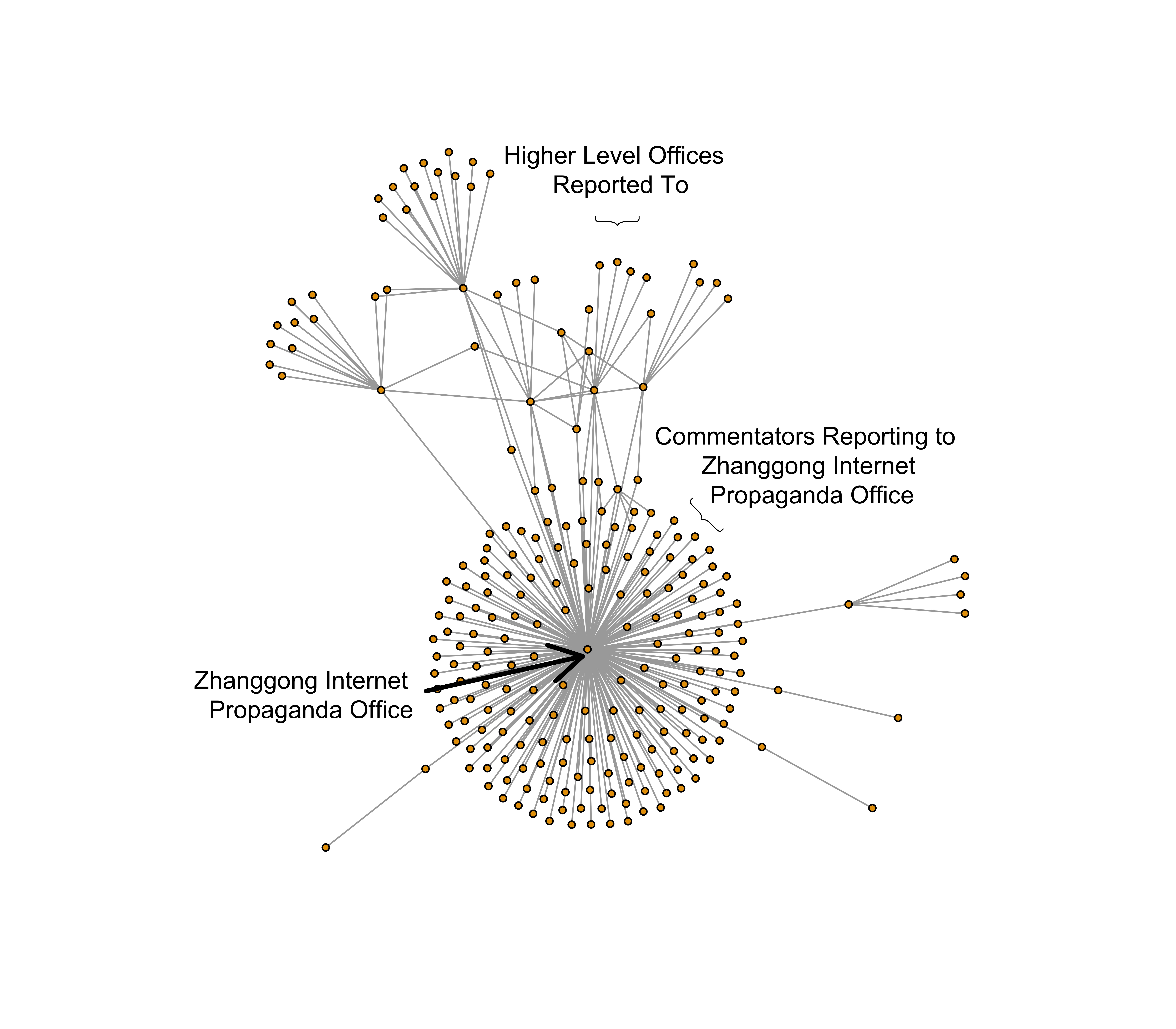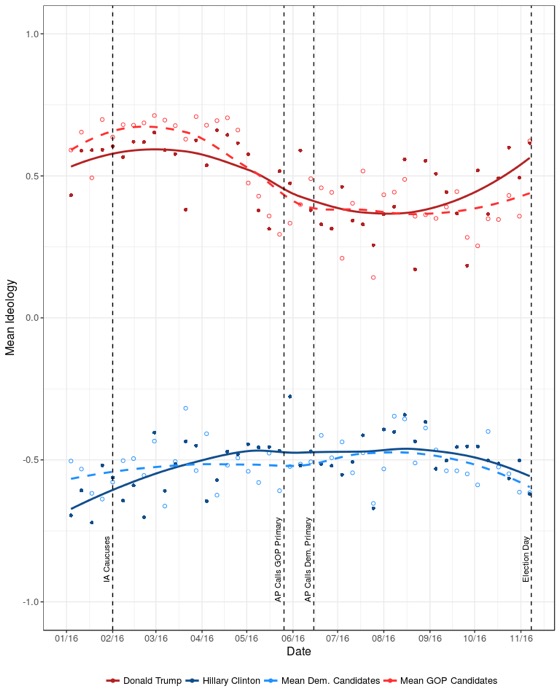UCSD’s Research on Social Media and Political Action
Prof. James Fowler worked with Facebook to show that social networks can making voting “contagious.” His work was featured as the cover story of the journal Nature, and is described in a New York Times article titled "Social Networks Can Affect Voter Turnout, Study Says". Professor Fowler teaches a course on Social Network Analysis Poli 173.

Each circle is a Facebook user who lives in Abilene, Texas, each line is a close friendship, and the red circles show who clicked on the "I Voted" button when they saw a get-out-the-vote message during the 2010 US Congressional Election.
Prof. Molly Roberts has worked with her collaborators at Harvard and Stanford to show, in the title of this paper, “How the Chinese Government Fabricates Social Media Posts for Strategic Distraction, Not Engaged Argument.”

Here is a network graph from her research of communications within a leaked e-mail archive of China's 50 Cent Party, which posts online propaganda in China. The cloud of nodes connected to the Zhanggong Propaganda Office are 50 Cent Party members reporting what they have written online at the behest of the government. Prof. Roberts teaches courses on Advanced Social Data Analytics (insert link to Poli 172), and our department also offers courses on Politics in the People’s Republic of China.
In their new project, “All the President’s Tweets,” Prof. Thad Kousser and PhD student Stan Oklobdzija worked with a team of eight undergraduate political science majors to train machine learning algorithms to code the tweets of Donald Trump, Hillary Clinton, and every other candidate in the 2016 presidential election. This graph charts the average ideology of each candidates’ tweets over time. Early in the campaign, both Trump and Clinton tweeted more extreme positions, but they moved toward the center once they began to clinch their parties’ nominations. As Election Day approached, though, both again moved closer to the ideological poles, perhaps attempting to galvanize and turn out their political bases.
